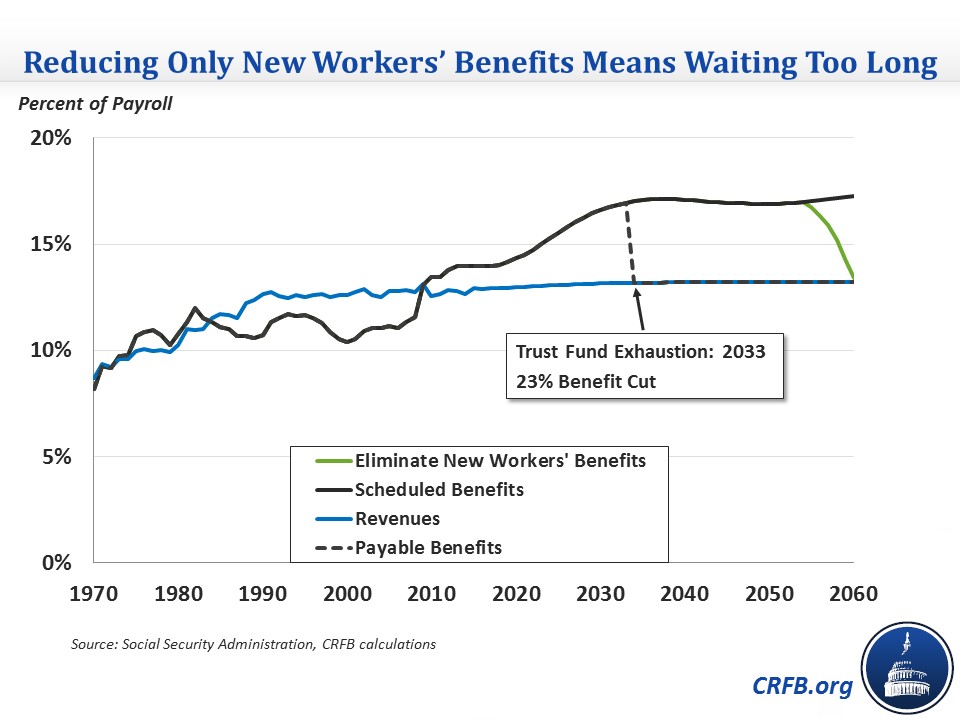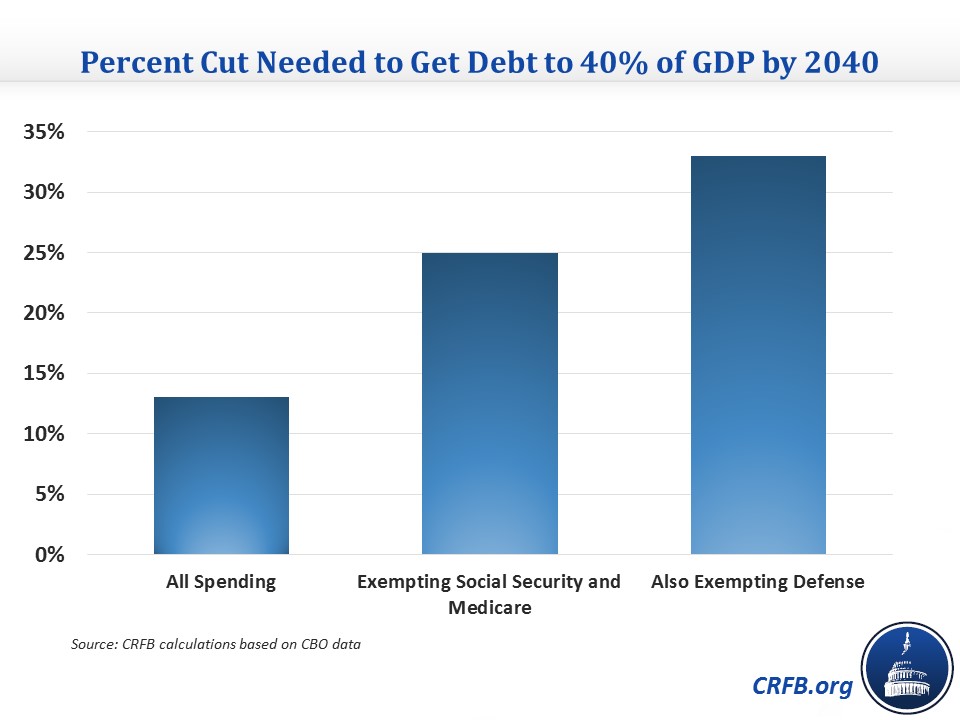Huckabee Position Doesn't Add Up for Debt or Social Security
Former Arkansas Governor and Republican presidential candidate Mike Huckabee has criticized other candidates who are calling for entitlement reform, but the promises he makes simply don’t add up. Yesterday at a campaign event in Florida, Governor Huckabee suggested that Social Security and Medicare should not change for anyone currently paying into the program, after he has already pledged to oppose any increase in taxes.
When it comes to Social Security, the Huckabee plan is mathematically impossible if he intends to keep the program as self-financing. The program is scheduled to run out of funds on a combined basis by 2033, which is more than 20 years before those newly entering the workforce begin to retire. Even eliminating all benefits for new workers would have no impact on the date of insolvency. That means the Huckabee plan for Social Security would effectively call for cutting benefits across-the-board by 23 percent in the early 2030s.

Even if Social Security were allowed to borrow from the rest of government, ruling out what Governor Huckabee has taken off the table will make it extremely difficult to put the debt on a more sustainable path.
Without new revenue, bringing debt down to historic levels by 2040 would require a 13 percent per year cut to all spending. Once Social Security and Medicare are off of the table for current taxpayers, the size of that cut rises to about one-quarter. And if defense, which Huckabee has said he will increase, is also exempt from cuts, the remaining programs would have to be cut by about one-third. To get a sense of what that means, in 2016, it would require eliminating all non-defense appropriations spending – everything from the Departments of Education and Transportation to the State Department to the entire federal workforce. Alternatively, achieving that cut would require eliminating the Medicaid, food stamps, and unemployment programs completely.

The late Senator Daniel Patrick Moynihan (D-NY) used to say that "everyone is entitled to his own opinions but not to his own facts." The presidential candidates will, of course, have different ideas and priorities, and we welcome that. But if policymakers take too much off the table, they'll be stuck making promises they cannot possibly deliver.

